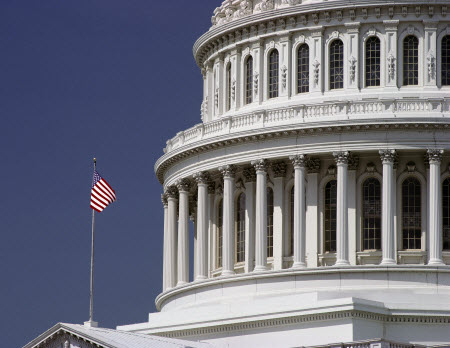Net Neutrality Bill Is Longest of Long Shots
The smarter way to stay on top of the multichannel video marketplace. Sign up below.
You are now subscribed
Your newsletter sign-up was successful

WASHINGTON — If opponents of the recent rollback of network neutrality rules were hoping for Congress to step in with legislation to restore the previous Internet regulations, here’s the big, open secret on Capitol Hill: It’s DOA.
There was much talk immediately following the Federal Communications Commission’s Dec. 14 vote to undo the 2015 rules, which classified broadband internet service as a common carrier under Title II of the Communications Act, about finding compromise legislation to fill the regulatory void. The move by FCC chair Ajit Pai reclassified internet service providers, leaving them unregulated by Title II provisions.
But talk of passing strict new Internet rules will remain talk — and perhaps not much of that — rather than legislative action, according to one highly placed Democratic staffer on Capitol Hill, reflecting the general sentiment on that side of the aisle.
Related:Markey Says GOP's Sen. Collins Joins CRA Effort| Markey Gets 40 Net Neutrality Rollback CRA Cosponsors
The new net neutrality-lite approach adopted by the Republicans last month in a bitterly divided vote won’t go into effect until early this year.
Little Bipartisan Will
Theoretically, at least, Congress has time to act, but scant bipartisan political will exists — despite both sides professing the need for some legislative certainty.
Rep. Marsha Blackburn (R-Tenn.) has unveiled a bill that would legislate prohibitions on blocking and throttling the Internet. That was the easy lift since Republicans, Democrats and ISPs all agree those practices should be off limits, and as all of the major internet service providers represented by NCTA-The Internet & Television Association and USTelecom have pledged to put that ban in writing, enforceable by the newly empowered, or at least authorized, Federal Trade Commission. There is some dispute over how much power that agency has, though, given its lack of rulemaking authority.
Related: Blackburn Introduces Open Internet Preservation Act
That was likely on purpose, with Republicans starting with what they thought both sides could agree on. A bill is not out of the question, particularly if edge providers such as Facebook and Google might be next up in the regulatory sights of a Congress increasingly concerned about their power over online content.
But one Democratic staffer familiar with the bill’s introduction suggested it was a nonstarter with their side — from the start.
Republicans involved with the bill never sent the measure to Democrats, even after it was released to the press, the source said. Congressional Democrats learned about it from a press release sent by an advocacy group reacting to it.
Related: Net Neutrality Group Targets Congress
Republicans did talk with the other side during the process of coming up with the bill, at least according to Republican public statements from last August, and the measure was similar to a 2015 incarnation both sides were familiar with.
Rep. Greg Walden (R-Ore.), chair of the House Energy & Commerce Committee, said the bill was meant to “kick off” the conversation, but also said Democrats should rethink their “litigate not legislate” strategy.
Democrats see the bill, or at least are positioning it, as more like another partisan shot across the bow.
Dems See Poison Pills
The Blackburn version of new Internet regulations includes what Dems see as poison pills, including pre-empting states from adopting their own net neutrality regulations and confining the FCC’s net neutrality regulatory authority to just what the bill covers and nothing more. Though, again, that was said to be an effort by Republicans at coming up with a narrow bill that would produce the vaunted certainty obviously lacking in an issue that has been kicking around the courts, Congress and the FCC for more than a decade.
“This was a play to say, ‘We [Republicans] don’t hate net neutrality,’ ” the Democratic source countered, and then outlined why it is a nonstarter with their side.
Related: Net Neutrality by the Numbers
The FCC already had net neutrality rules that it could enforce, and that the Democrats backed, and they skeptically predicted anything Congress does will be less than that. Title II remains a powerful draw for Democrats, who will not give it up without a fight.
Moreover, Congress can restore network neutrality rules, but the key to their effectiveness is in enforcement.
Eyes on the Midterms
Democrats may not be in any hurry to negotiate, given what they see as brightening chances to regain the House in the 2018 elections and restore Title II via legislation. They may also want to let an effort to nullify the rules rollback through the Congressional Review Act play out first.
Saving net neutrality by restoring the FCC’s 2015 rules is an issue that plays well with millennials back in the home districts of Democrats. Younger voters have been showing up to rallies and events geared around the FCC net neutrality vote, the source said.
The smarter way to stay on top of the multichannel video marketplace. Sign up below.
Contributing editor John Eggerton has been an editor and/or writer on media regulation, legislation and policy for over four decades, including covering the FCC, FTC, Congress, the major media trade associations, and the federal courts. In addition to Multichannel News and Broadcasting + Cable, his work has appeared in Radio World, TV Technology, TV Fax, This Week in Consumer Electronics, Variety and the Encyclopedia Britannica.

